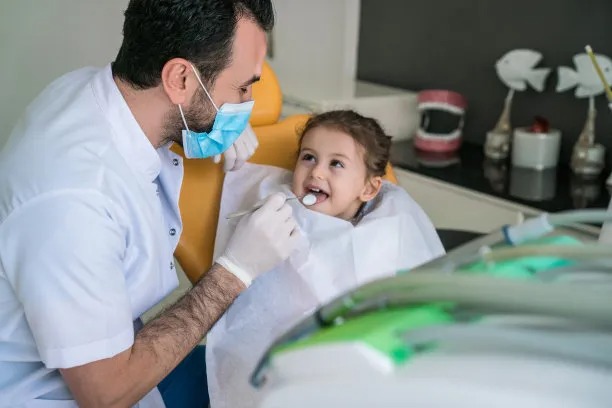Summary: Dental filling procedures are essential for maintaining optimal oral health, especially when dealing with cavities or decay. This article outlines essential guidelines and precautions to follow before and after the filling process. It emphasizes the importance of communication with your dentist, what to expect during the procedure, post-treatment care, and the need for follow-up visits. By adhering to these guidelines, patients can minimize discomfort, ensure effective healing, and maintain long-term dental health.
1. Communication with Your Dentist Matters

Before undergoing a dental filling, open communication with your dentist is crucial for a smooth experience. Understanding the type of filling material used, the procedure itself, and any potential side effects can alleviate anxiety and prepare you mentally for the appointment.
Its essential to discuss any allergies, medical conditions, or medications you’re currently taking, as these factors can influence the treatment plan. Make a list of any questions you may have and address them during your consultation.
Effective communication ensures that you are on the same page with your dentist, increasing your comfort level and understanding of the entire process, which ultimately leads to better outcomes.
2. Preparing for Your Dental Filling Procedure
Preparation is key to a successful dental filling procedure. One of the first steps involves ensuring you are in good health and free from any acute dental problems prior to your appointment. Maintaining a healthy oral hygiene routine can also significantly impact the procedures effectiveness.
Its advisable to avoid heavy meals right before the appointment to reduce the likelihood of discomfort or nausea during the procedure. You may also want to consider arranging for a ride home if you plan to receive sedation, as you may feel drowsy afterward.
Moreover, arriving punctually and following any pre-appointment instructions provided by your dentist can contribute positively to your overall experience. Being relaxed and prepared sets the tone for a more successful procedure.
3. Post-Treatment Care for Optimal Healing
After your dental filling, adhering to specific post-treatment care guidelines is paramount for optimal healing. Initially, it’s advisable to refrain from eating or drinking until the anesthesia wears off completely to avoid accidentally biting your cheek or tongue.
For the first few days following the procedure, try to consume soft foods and maintain a gentle oral hygiene routine to avoid irritating the filling. Be cautious with hot or cold beverages, as your tooth may be sensitive for a short period.
Additionally, maintaining an awareness of any discomfort or pain post-treatment is vital. Over-the-counter pain relievers can be beneficial if pain persists, but its also essential to keep your dentist informed about your healing progress during your follow-up visits.
4. Importance of Follow-Up Visits
Post-procedure follow-ups are critical to ensure that your dental fillings are intact and functioning correctly. These visits allow your dentist to assess the filling and address any complications that may arise, such as discomfort or misalignment.
Regular dental check-ups become even more important after a filling, as they help in monitoring the overall health of your teeth and gums. Timely interventions can prevent further decay or complications.
Moreover, discussing your oral hygiene habits during these appointments can help your dentist provide tailored advice about maintaining your oral health post-treatment. Establishing a consistent follow-up schedule ensures that you keep on top of your dental health.
Summary:
In conclusion, following essential guidelines and precautions before and after your dental filling procedure is crucial for promoting optimal oral health. Emphasizing communication with your dentist, preparing adequately for the appointment, taking care of your oral health post-treatment, and attending follow-up visits will significantly enhance your experience and results. By adopting these practices, you can sustain your dental well-being for years to come.
This article is compiled by Vickong Dental and the content is for reference only.
Vickong Dental
Vickong Dental is a large medical group established in Hong Kong in 2008 by professors from well-known medical universities in Guangdong and Hong Kong, as well as medical doctors from key national '985' universities (including Master's supervisors and senior professors). The chain of branches brings together expert dentists with PhDs and Master's degrees from Hong Kong and Mainland China, committed to providing high-quality dental treatment.
"Vickong Dental Practices the University Motto of 'Healing and Serving Society,' with a Stable Operation for Sixteen Years. It Has Been honored with Hong Kong Enterprise Leaders's Choice,' and is a Global Trusted Implant Center for the Nobel Implant System. Recommended by Hong Kong Metro Broadcast and Guangdong Television, it Serves Customers from Over Thirty Countries and Regions, Gaining the Trust and Favor of Citizens from the Guangdong-Hong Kong-Macau Greater Bay Area and Surrounding Cities.

Thousands of customers' unanimous praise
The most recognized and highly recommended dental service by customers in the Guangdong-Hong Kong-Macau Greater Bay Area
We Ensure You Receive Detailed Care and Attention Here
Hong Kong standards, Shenzhen prices, Your Trusted English-speaking dentists

Vickong Dental Medical-Grade Instrument Disinfection Process
Vickong Dental Medical-Grade Instrument Disinfection Process

Vickong Dental Chain: A Warm and Comfortable Environment for Treatment






Appointment Hours

Q&A
Why choose Vickong Dental?
Vickong Dental practices the university motto 「Medicine to Benefit Society」, with each branch bringing together highly qualified dentists with doctoral and master’s degrees from Hong Kong and the Mainland, and has maintained seventeen years of steady operation。Recipient of 「2024 Hong Kong Enterprise Leaders Brand」, 「2025 Hong Kong Enterprise Leaders Brand」, a Nobel Biocare Global Trusted Implant Center, and a brand recommended by Metro Radio Hong Kong and Guangdong TV。
To date, we have served customers from more than thirty countries and regions,earning exceptionally high word-of-mouth recognition and trusted recommendations from residents across the Guangdong-Hong Kong-Macao Greater Bay Area and surrounding cities
We have eight major branches in Zhuhai、Shenzhen,and a consultation and service assurance center in Hong Kong,so you can book a free consultation at any time for any questions,which is very reassuring.
If I do not accept the quotation after the CT scan, will I be charged??
No! As long as the actual treatment has not started, you will not be charged any fees.
Will there be any additional charges during the treatment process?
No, there won’t be any additional charges. Before treatment begins, we will clearly explain the treatment plan and its corresponding fees. Only after the patient agrees and signs the consent form will we proceed with the dental service.
Can I pay in Hong Kong dollars?
Yes. Vickong Dental accepts payment in Hong Kong dollars. The amount will be converted based on the exchange rate of the day, and the applicable rate will be clearly communicated to you in advance.
Can I reschedule my appointment at any time?
Yes. Please contact us via **WeChat** or **WhatsApp** as early as possible, providing your original appointment time and details, along with your preferred new date and time slot for rescheduling.













